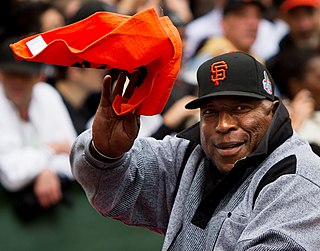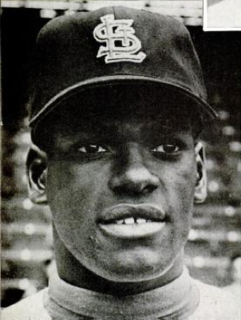
Elections to the Baseball Hall of Fame for 2001 followed the system in use since 1995. The Baseball Writers' Association of America (BBWAA) voted by mail to select from recent major league players and elected two: Kirby Puckett and Dave Winfield. The Veterans Committee met in closed sessions and selected two people from multiple classified ballots: Bill Mazeroski and Hilton Smith.

Elections to the Baseball Hall of Fame for 1998 followed the system in use since 1995. The Baseball Writers' Association of America (BBWAA) voted by mail to select from recent major league players and elected Don Sutton. The Veterans Committee met in closed sessions and selected four people from multiple classified ballots: George Davis, Larry Doby, Lee MacPhail, and Bullet Rogan. A formal induction ceremony was held in Cooperstown, New York, on July 26, 1998.

Elections to the Baseball Hall of Fame for 1997 followed the system in use since 1995. The Baseball Writers' Association of America (BBWAA) voted by mail to select from recent major league players and elected Phil Niekro. The Veterans Committee met in closed sessions and selected three people from multiple classified ballots: Nellie Fox, Tommy Lasorda, and Willie Wells. A formal induction ceremony was held in Cooperstown, New York, on August 3, 1997.

Elections to the Baseball Hall of Fame for 1996 followed the system in use since 1995. The Baseball Writers' Association of America (BBWAA) voted by mail to select from recent major league players but no one tallied the necessary 75% support.

Elections to the Baseball Hall of Fame for 1995 introduced a system of multiple classified ballots for consideration by the Veterans Committee. That group met in closed sessions as usual and selected four people: Richie Ashburn, Leon Day, William Hulbert, and Vic Willis. Day and Hulbert were named from the new ballots for Negro leagues and 19th century figures.

Elections to the Baseball Hall of Fame for 1994 followed the system in place since 1978. The Baseball Writers' Association of America (BBWAA) voted by mail to select from recent major league players and elected Steve Carlton. The Veterans Committee met in closed sessions to consider older major league players as well as managers, umpires, executives, and figures from the Negro leagues. It selected two, Leo Durocher and Phil Rizzuto. A formal induction ceremony was held in Cooperstown, New York, on July 31, 1994.

Elections to the Baseball Hall of Fame for 1993 followed the system in place since 1978. The Baseball Writers' Association of America (BBWAA) voted by mail to select from recent major league players and elected Reggie Jackson. The Veterans Committee met in closed sessions to consider older major league players as well as managers, umpires, executives, and figures from the Negro leagues; it selected no one. A formal induction ceremony was held in Cooperstown, New York, on August 1, 1993.
Elections to the Baseball Hall of Fame for 1992 followed the system in place since 1978. The Baseball Writers' Association of America (BBWAA) voted by mail to select from recent major league players and elected two, Rollie Fingers and Tom Seaver. The Veterans Committee met in closed sessions to consider older major league players as well as managers, umpires, executives, and figures from the Negro leagues. It selected two, Bill McGowan and Hal Newhouser. A formal induction ceremony was held in Cooperstown, New York, on August 2, 1992.
Elections to the Baseball Hall of Fame for 1991 followed the system in place since 1978. The Baseball Writers' Association of America (BBWAA) voted by mail to select from recent major league players and elected three, Rod Carew, Ferguson Jenkins, and Gaylord Perry. The Veterans Committee met in closed sessions to consider older major league players as well as managers, umpires, executives, and figures from the Negro leagues. It selected two, Tony Lazzeri and Bill Veeck. A formal induction ceremony was held in Cooperstown, New York, on July 21, 1991.
Elections to the Baseball Hall of Fame for 1990 followed the system in place since 1978. The Baseball Writers' Association of America (BBWAA) voted by mail to select from recent major league players and elected two, Joe Morgan and Jim Palmer. The Veterans Committee met in closed sessions to consider older major league players as well as managers, umpires, executives, and figures from the Negro leagues. It selected no one. A formal induction ceremony was held in Cooperstown, New York, on August 6, 1990; after being delayed a day due to rain, it was held indoors due to continued bad weather.
Elections to the Baseball Hall of Fame for 1989 followed the system in place since 1978. The Baseball Writers' Association of America (BBWAA) voted by mail to select from recent major league players and elected two, Johnny Bench and Carl Yastrzemski. The Veterans Committee met in closed sessions to consider older major league players as well as managers, umpires, executives, and figures from the Negro leagues. It also selected two people, Al Barlick and Red Schoendienst. A formal induction ceremony was held in Cooperstown, New York, on July 23, 1989.

Elections to the Baseball Hall of Fame for 1988 followed the system in place since 1978. The Baseball Writers' Association of America (BBWAA) voted by mail to select from recent major league players and elected Willie Stargell. The Veterans Committee met in closed sessions to consider older major league players as well as managers, umpires, executives, and figures from the Negro leagues; it selected no one. A formal induction ceremony was held in Cooperstown, New York, on July 31, 1988, with Commissioner of Baseball Peter Ueberroth in attendance.

Elections to the Baseball Hall of Fame for 1986 followed the system in place since 1978. The Baseball Writers' Association of America (BBWAA) voted by mail to select from recent major league players and elected Willie McCovey. The Veterans Committee met in closed sessions to consider older major league players as well as managers, umpires, executives, and figures from the Negro leagues. It selected two players, Bobby Doerr and Ernie Lombardi. A formal induction ceremony was held in Cooperstown, New York, on August 3, 1986, with Commissioner of Baseball Peter Ueberroth, and former Commissioners Bowie Kuhn and Happy Chandler, in attendance.

Elections to the Baseball Hall of Fame for 1985 followed the system in place since 1978. The Baseball Writers' Association of America (BBWAA) voted by mail to select from recent major league players and elected two, Lou Brock and Hoyt Wilhelm. The Veterans Committee met in closed sessions to consider older major league players as well as managers, umpires, executives, and figures from the Negro leagues. It also selected two players, Enos Slaughter and Arky Vaughan. A formal induction ceremony was held in Cooperstown, New York, on July 28, 1985, with broadcaster Brent Musburger handling introductions and Commissioner of Baseball Peter Ueberroth in attendance.
Elections to the Baseball Hall of Fame for 1984 followed the system in place since 1978. The Baseball Writers' Association of America (BBWAA) voted by mail to select from recent major league players and elected three: Luis Aparicio, Don Drysdale, and Harmon Killebrew. The Veterans Committee met in closed sessions to consider older major league players as well as managers, umpires, executives, and figures from the Negro leagues. It selected two players, Rick Ferrell and Pee Wee Reese. A formal induction ceremony was held in Cooperstown, New York, on August 12, 1984.
Elections to the Baseball Hall of Fame for 1983 followed the system in place since 1978. The Baseball Writers' Association of America (BBWAA) voted by mail to select from recent major league players and elected two, Juan Marichal and Brooks Robinson. The Veterans Committee met in closed sessions to consider older major league players as well as managers, umpires, executives, and figures from the Negro leagues. It selected Walter Alston and George Kell. A formal induction ceremony was held in Cooperstown, New York, on July 31, 1983, with Commissioner of Baseball Bowie Kuhn presiding.
Elections to the Baseball Hall of Fame for 1982 followed the system in place since 1978. The Baseball Writers' Association of America (BBWAA) voted by mail to select from recent major league players and elected two, Hank Aaron and Frank Robinson. The Veterans Committee met in closed sessions to consider older major league players as well as managers, umpires, executives, and figures from the Negro leagues. It selected the second Commissioner of Baseball, Happy Chandler, and former New York Giants shortstop Travis Jackson. A formal induction ceremony was held in Cooperstown, New York, on August 1, 1982, with the current Commissioner of Baseball, Bowie Kuhn, presiding.

Elections to the Baseball Hall of Fame for 1981 followed the system in place since 1978. The Baseball Writers' Association of America (BBWAA) voted by mail to select from recent major league players and elected Bob Gibson. The Veterans Committee met in closed sessions to consider older major league players as well as managers, umpires, executives, and figures from the Negro leagues. It selected Rube Foster and Johnny Mize. Foster would be one of two people from the Negro leagues elected in seventeen years, before introduction of a separate ballot in 1995. A formal induction ceremony was held in Cooperstown, New York, on August 2, 1981, with Commissioner of Baseball Bowie Kuhn presiding.

Elections to the Baseball Hall of Fame for 1977 followed the system in place since 1971. The Baseball Writers' Association of America (BBWAA) voted by mail to select from recent major league players and elected Ernie Banks. The Veterans Committee met in closed sessions to consider executives, managers, umpires, and earlier major league players. It selected three people: Al López, Amos Rusie, and Joe Sewell. The Negro League Committee also met in person and selected two players, Martín Dihigo and John Henry Lloyd. The Negro League Committee also decided to disband; it had elected nine players in seven years. A formal induction ceremony was held in Cooperstown, New York, on August 8, 1977, with Commissioner of Baseball Bowie Kuhn presiding.

Elections to the Baseball Hall of Fame for 1966 followed the system introduced for even-number years in 1956. The Baseball Writers' Association of America (BBWAA) voted by mail to select from recent major league players with provision for a second, "runoff" election in case of no winner. Ted Williams tallied more than 90% on the first ballot. Meanwhile, the Veterans Committee was meeting annually to consider executives, managers, umpires, and earlier major league players. It selected Casey Stengel. A formal induction ceremony was held in Cooperstown, New York, on July 25, 1966, with Commissioner of Baseball William Eckert presiding. During his acceptance speech, Williams advocated for the inclusion of Negro league baseball players, such as Satchel Paige and Josh Gibson, in the Hall of Fame. Paige was inducted in 1971, and Gibson in 1972.














